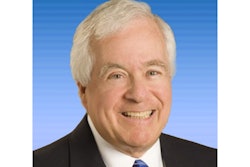Buying or selling a dental practice? Trying to defer taxable income? Worried about creditors or protecting your family? What does a successful dentist do to expand his or her dental practice value while retaining the safety of accumulated assets?
 Bruce Bryen, CPA, CVA.
Bruce Bryen, CPA, CVA.
Each of the questions above presents a quandary for any dentist. For the dentist with an adequate skill set, a reasonable personality, and an urge to succeed, each of the above questions must be addressed in short order to guarantee the dentist does not go off-track with the dental practice growing as its number of patients, gross revenue, and operating expenses increase.
The first item to tackle, of course, is the acquisition of the dental practice itself. Where should the physical location of the dental practice be? Acquiring a demographic study detailing the education levels of the population in the surrounding geographic area of the dental practice under consideration is important for the dentist to undertake and procure.
Can families living near the practice afford the dentist’s services? More patients mean more complex procedures and higher prices.
Additionally, good equipment and quality assistants are keys to success. To get quality employees and keep them long term, the dentist must offer not only competitive compensation but also a good fringe benefits package.
As a dental practice grows (both in terms of gross revenue and value), whom should the dentist hire, and how much should the employees be compensated?
Health benefits are something that employees want, and they may not wish to work for a particular dentist unless they are furnished. This is especially true for individuals who are not married or who are in partnership-type arrangements. These personnel can’t depend on someone else to supply health benefits because there is no one else.
The need for an upscale, sophisticated, qualified employer-sponsored retirement plan becomes critical for the practice owner and staff as the dental practice grows its revenue and worth. It is important that the dentist and his or her key people derive most of the benefit of the retirement plan, or it will be too costly for the dental practice to maintain.
Many dentists deny the adoption of a retirement plan because the cost for the employees is too great. That is a mistake -- a smart dental certified public accountant can assist with a formula that substantially reduces the costs for the employees and raises the benefit to the owner.
Who should be hired, and where can qualified people be found?
Assisting dental practices in hiring skilled, qualified personnel is a must, and certain people with this expertise know how to do it. Any large turnover of employees with faces that are not recognized by the patients leads to a drop in confidence in the overall practice. Patients think that something is wrong with the owners who cannot keep good employees.
A great resource is someone with significant experience in compensation and benefits arrangements who has helped other dental practices. Interviews should be held to determine the best person that the dental practice can afford.
Even the model for dental service organization (DSO) acquisition has a personnel wish list that is primed for the stability of its personnel. This is why when a DSO acquires a dental practice, it almost always insists that the employees remain with the practice. This is especially true for the practice's key people. Unless an employee is unfit for the practice, the goal is to keep all the employees.
What are some questions to ask, and what answers are satisfactory?
When interviewing a potential consultant, some questions to ask are as follows:
- How many dental practices has this professional been involved with over the years?
- How many satisfied dental clients are there who will attest to the professional’s ability to help transform previous dental practices?
- Will these dentists with experience with the professional adviser put forth their names or even offer references anonymously with positive comments?
What pay rate is acceptable for a consultant that won't break the bank?
Good advice is usually more expensive than average or poor advice, and the results should be better than that of the typical consultant or adviser who will offer their fees at a lower price.
Professionals who charge lower fees usually lack the experience to assist the dentist to the highest degree possible. When a large professional fee becomes due and payable, it is difficult to think long term, but that is what the dentist must do when considering the result that will have been achieved or is on the way to achievement and how that will affect the future of the dental practice. That future will determine the dentist’s income and the value of the dental practice.
Attracting excellent employees with top-of-the-line skill sets, personalities, and work ethics helps pull this type of dental practice ahead of its competitors. The cost of doing this may be on the high side in the short term, but expected good results should last continually into the future for the dentist and, of course, the dental practice.
Bruce Bryen is a certified public accountant with more than 45 years of experience. He specializes in providing litigation support services to dentists, with valuation and expert witness testimony in matrimonial and partnership dispute cases. Bryen assists dentists with financial decisions about their practice, practice sales, evaluating whether to join a DSO, practice evaluation during divorce proceedings, and questions about the future or financial health of dental practices. He can be reached at [email protected].
The comments and observations expressed herein do not necessarily reflect the opinions of DrBicuspid.com, nor should they be construed as an endorsement or admonishment of any particular idea, vendor, or organization.



















